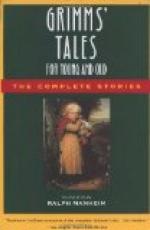‘Oh, papa,’ exclaimed Eugene, ’that lime-tree that has grown so beautiful since last year! I was looking at it the other day, and I saw shoots of this year as long as my arm.’
At this moment they came to a young poplar which had been blown down by a storm the preceding day. Its leaves were not yet withered, but its young shoots, though still green, began to lose their vigour; they were soft and weak, as if drooping from want of water; but in that case a refreshing shower would have restored it to health and freshness, whereas now it was beyond recovery. Eugene stopped before the poplar, and lamented it.
‘Such,’ said Monsieur D’Ambly, ’will in two days more be the state of our lime-tree.’
‘Ah!’ cried Eugene, ‘can you have the heart to say so?’
’Why not? A lime is not more valuable than a poplar, or an oak; and you would like to see this whole forest in a blaze.’
‘Indeed, papa, that is a very different thing.’
’Yes; there is certainly a vast difference between a person cutting down a tree that incommodes him, and that he would then make use of for fuel, and fourteen or fifteen thousand that you would burn for your pleasure.’
‘But I do not know those trees.’
‘Neither do you know this poplar that you have just been lamenting.’
‘But at least I see it.’
’You can as easily see all those that surround it. Look at this one, how strong and how straight it is!’
’Oh, what a fine oak! I do not think my arms could reach round it. See, papa, how high it is, and those three great branches which grow from it look like large trees.’
’It must be sixty or seventy years old: it will grow at least twenty more.’
‘How enormous it will be then! I hope I shall see it.’
‘But if it should be burned in the meantime?’
‘I should be very sorry, now that I know it.’
’You would, then, only spare those trees from the fire which have come under your own particular notice: this is too common a case. Would it give you more pleasure to see this one burning?’ said Monsieur D’Ambly, as he showed him another, divided into four enormous trunks, which shot from the same root.
’No, indeed. Look, it makes quite an arbour. Papa, some day when we have more time we will come and sit here, shall we not?’
’So, then, here are two that you would spare from the conflagration of the forest.’
’Oh, if I could but see it on fire, what a fine effect it would have from the windows of the chateau; I should think only of my two favourite oaks that I should be so sorry to see burning.’
’But all those you see equally deserve to become favourites, and those you cannot see are quite as fine; they have each in their different forms something that would interest you as much as your two favourite oaks, the poplar, or our lime-tree.’
’I do believe that if I were to think of every particular tree that composed a forest, it would take away all wish to see it burned.’




